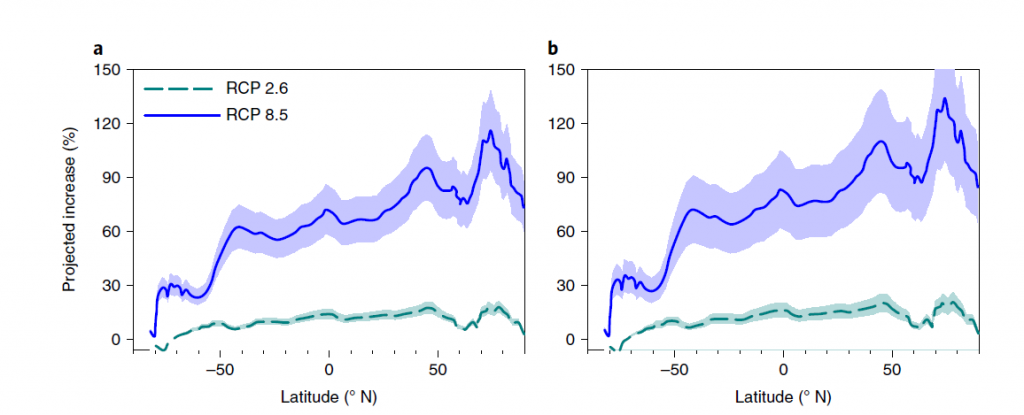Microbes produce more N2O with rising temperatures
Anaerobic microbes produce more nitrous oxide (N2O), a strong greenhouse gas, with rising temperatures, a new research article published in Nature Climate Change shows. The researchers also find that higher temperatures slow down a microbial process that breaks down nitrogen, The combined effect of these two processes would, with increasing global temperatures, result in a higher production of N2O over the course of this century, contributing to even further global warming. NESSC-researcher Jack Middelburg is one of the authors of the publication.
The anthropogenic production of nitrogen, from sewage to fertilizer, has increased ten-fold over the past century and is expected to grow. Microbes, living in oxygen-free environments such as rice paddies, mud flats or the seafloor, break down the influx of nitrogen. However, rising temperatures could influence these microbial processes, promoting or suppressing nitrogen breakdown and thereby influencing climate change feedbacks.
Nitrous oxide
The researchers therefore studied two processes playing a role in nitrogen breakdown, using samples from different coastal systems in southern China. The process of denitrification removes nitrogen – but also produces the gas nitrous oxide (N2O), a greenhouse gas about 300 times stronger compared to CO2. Another microbial process, known as anammox, also removes nitrogen and produces a harmless nitrogen gas, N2.

While many other factors influence these two processes, the researchers find that an increase in warming favours the process of denitrification more than anammox. Rising global temperatures would result in a larger production of N2O, while the anammox process would slow down. The researchers also calculated different warming scenarios, finding that in 2100 the N2O production could increase by one fifth or could more than double (130 percent), with the highest increase in ecosystems in the northern hemisphere. This additional contribution of N2O to the world’s atmosphere would cause even further warming of the global climate, the researchers caution.
Article:
Warming stimulates sediment denitrification at the expense of anaerobic ammonium oxidation
Nature Climate Change, 2020
Ehui Tan, Wenbin Zou, Zhenzhen Zheng, Xiuli Yan, Moge Du, Ting-Chang Hsu, Li Tian, Jack J. Middelburg, Thomas W. Trull and Shuh-ji Kao
https://doi.org/10.1038/s41558-020-0723-2

